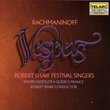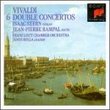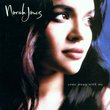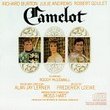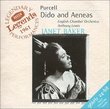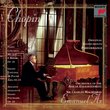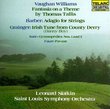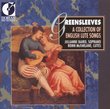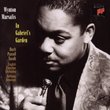| All Artists: Giovanni Gabrieli, Heinrich Isaac, Adriano Banchieri, Gabriel Diaz Besson, Carl St. Clair, Empire Brass Title: Music Of Gabrieli Members Wishing: 0 Total Copies: 2 Label: Telarc Release Date: 4/23/2002 Genre: Classical Styles: Opera & Classical Vocal, Chamber Music, Forms & Genres, Concertos, Historical Periods, Classical (c.1770-1830) Number of Discs: 1 SwapaCD Credits: 1 UPC: 089408020421 |
Search - Giovanni Gabrieli, Heinrich Isaac, Adriano Banchieri :: Music Of Gabrieli
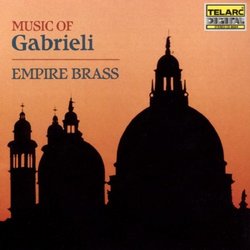 | Giovanni Gabrieli, Heinrich Isaac, Adriano Banchieri Music Of Gabrieli Genre: Classical
![header=[] body=[This CD is available to be requested as disc only.]](/images/attributes/disc.png?v=4eeb5dd5) ![header=[] body=[This CD is available to be requested with the disc and back insert.]](/images/attributes/disc_back.png?v=4eeb5dd5) ![header=[] body=[This CD is available to be requested with the disc and front insert.]](/images/attributes/disc_front.png?v=4eeb5dd5) ![header=[] body=[This CD is available to be requested with the disc, front and back inserts.]](/images/attributes/disc_front_back.png?v=4eeb5dd5) |
Larger Image |
CD DetailsSimilarly Requested CDs |
CD ReviewsVirtuoso playing of the highest order. Rafael Enrique Irizarry | San Juan, PR United States | 08/20/2000 (5 out of 5 stars) "I find it surprising that no one has bothered to review this remarkable document. The legendary 1960's recording by the Brass players of Philadelphia, Cleveland and Chicago on the old Columbia label, was finally given its proper base for comparison. At the time of recording, the Empire Brass was, undoubtedly, America's premiere virtuoso group of its genre. This recording brings to the fore what is best in american brass playing, also giving again to Maestro Gabrieli's music the type of exposure that has nurtured a generation of music lovers and brass players. This is similar to the effect that the earlier recording had on the current crop of professional orchestral players in the United States, who openly acknowledge having being inspired by the music making of their distinguished elders.I did take this Empire Brass recording with me to Venice, on trips there in '97 and '98, and actually had the opportunity to sit in the exact center of St. Mark's with my CD player. (Headphones on, of course). Everything came together in a sort of epiphany that goes beyond words.There is no keyboard instrument on this CD, so be ready to share in the joy of listening to these gentlemen routinely create the majestic sounds of an Organ in a seemingly effortless manner.At times the spatial distribution necessary in the context of the venetian "Concertato" or Antiphonal style is not sufficiently differentiated. Also, the general volume in some of the louder passages tends to obscure interesting inner voice parts. Track 5 contains a magnificent example of "Ground Bass" Canzona, showcasing overwhelmingly beautiful trumpet playing, and very sensitive high range Tuba execution. Track seven displays Gabrieli's polychoral technique, and takes the brilliant trumpet playing of Mr. Smedvig and his colleagues (Tim Morrison of "Born on th 4th of July" and "Summon of the Heroes" fame amongst them), to almost divine heights.Despite the high level of the present Early Music groups involved with researching and reaprasissing for recording the exquisite heirloom of G. Gabrieli, his contemporaries and students, this Empire Brass performance should be treasured by both lovers of the Early Baroque and audiophiles. Let's not forget that the quality of the recorded sound is simply glorious. You will find yourself going back to this recording on routine basis, just to be thrilled by the virtuosity and the sound. This music was not only contemplative or speculative within its 17th century context, but it also strived to induce a purely sensual experience that can still hold you spellbound almost exactly 400 years after its composition." Peerless and Definitive Interpretations of the 1615 Antholog David J. Horne | Cincinnati, Ohio United States | 03/03/2006 (5 out of 5 stars) "This recording contains peerless and definitive performances of several selections from Canzoni e Sonate, the postumous 1615 collection of 20 Gabrieli canzons and sonatas that are played in our era on brass instruments. The second cut, Canzon XVI for three choirs and 12 instrumental voices, is one of the great performances of brass music on disc. If it doesn't raise your hair, you don't respond to brass music. I have organized performances of Gabrieli for more than 20 years. Robert King contributed greatly to the post World War II revival of Gabrieli by creating his popular and readily available transcriptions of the 1597 collection of brass music, Sacrae Symphoniae, but he never got to the 1615 anthology. Until I acquired this disc, my programs were limited to the 1597 selections and the six from 1608. Carl St. Clair's interpretations of the 1615 repertoire on this disc were a revelation. Other recordings of the 1615 music by the Canadian Brass, the Wallace Collection, and even Rolf Smedvig's successor recording to this disc, do not do the music justice. I have transcribed and performed six of the 1615 canzons, including Canzon XVI, because of the St. Clair readings on this disc. Any brass player interested in Gabrieli should own both this disc and the classic 1969 recording of 1597 and 1608 repertoire by the Philadelphia, Cleveland and Chicago brass ensembles. Eric Crees has done a commendable job of recording all the Gabrieli brass music. A performer of Gabrieli should own all three of Crees' discs. The readings on this disc and the 1969 recording, however, are essential classics." Excellent Work of Hard to Find Selections Daniel Granados | los angeles, CA | 11/08/2005 (5 out of 5 stars) "Comparing modern brass to period instruments is quite ignorant and pointless. Very little music is played on period instruments becuase it is incredibly pointless. Advances in technology and production are used for a reason. This is a well produced and performed collection of incredible brass music. My personal favorite is Canzon XIII. Any person who has performed or been enthralled by the music of Gabrieli will greatly enjoy this album."
|

 Track Listings (19) - Disc #1
Track Listings (19) - Disc #1